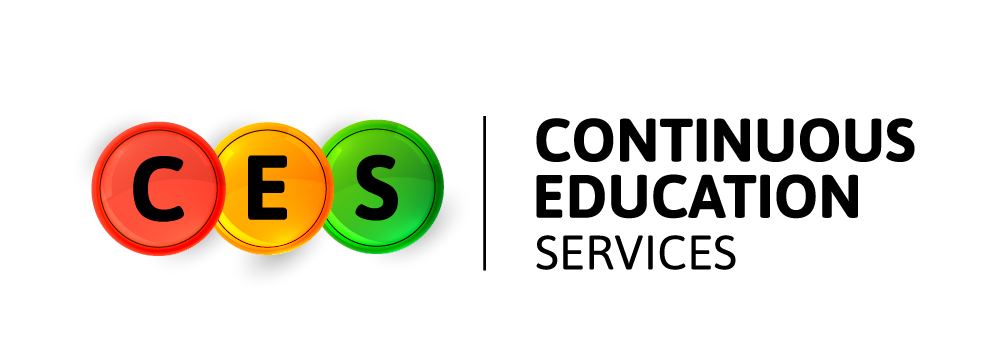
← Pharmacists CPD
Fundamentals of Supply Chain Management by Novartis Value Chain Academy and the Ghana College of Pharmacists - Cohort 1 2024
Accreditation Details
1 Apr. 2024
29 Dec. 2024
4
ORGANIZED BY NOVARTIS VALUE CHAIN ACADEMY IN COLLABORATION WITH THE GHANA COLLEGE OF PHARMACISTS



The Value Chain Academy training program is meticulously curated by Novartis, in close partnership with the Ghana College of Pharmacists (GCPharm). Its paramount objective is to empower society by fortifying local healthcare systems and enhancing accessibility to medicines of unparalleled quality. This comprehensive educational initiative is particularly attuned to the critical sphere of the value chain, emphasizing the profound significance of quality in supply policies and processes. The program is custom-tailored for pharmacists engaged in both private and public healthcare institutions in Ghana. Delivered via real-time online sessions facilitated by subject matter experts, it has been fostering professional growth since its inception in 2018, extending its reach to 8 nations across Africa characterized by diverse socioeconomic backgrounds.
DATE: 9th May to 20th June 2024
TIME: 1900 GMT (7:00 PM Local Time) Every Tuesday and Thursday
CERTIFIED AND ACCREDITED BY THE CPD CERTIFICATION SERVICE GLOBALLY, AND LOCALLY BY THE PHARMACY COUNCIL OF GHANA


Endorsed with global recognition for Continuing Professional Development (CPD), the program guarantees participants access to internationally validated professional training.
The holistic program is structured into two integral sections: "Quality in Supply" and "Supply Chain Management," with each module meticulously designed to give participants comprehensive insights and practical knowledge. Supplementing the training and learning experience are two immersive Practical Sessions, where participants can apply their learnings in real-world scenarios.
In this part of the training program, the focus will be on SUPPLY CHAIN MANAGEMENT. Participants will embark on a comprehensive exploration of the intricacies of supply chain management. By blending in-depth analysis with hands-on practical applications, participants will develop a profound understanding of the multifaceted components that contribute to the smooth flow of pharmaceutical products within the supply chain. Topics to be covered include:
1. Introduction to Supply Chain Management: This module explores the impact of stockouts on the healthcare system.
2. Supply Model: Participants will understand customer needs, product portfolio management, and capabilities required in an efficient supply chain.
3. Master Data Management: This section covers definitions and sources of master data, data quality control processes, and methods to improve master data.
4. Forecasting: Participants will explore planning fundamentals, forecasting techniques, goals, and challenges in the supply chain.
5. Replenishment Planning Part 1: Participants will receive an overview of supply chain concepts, terminology, and theory.
6. Replenishment Planning Part 2: This module includes practical exercises and examples to reinforce the concepts learned in Part 1.
7. Order Management: Participants will gain insights into the goals and challenges of effective order management.
8. S&OP Principles and Application: This module covers Sales and Operations Planning principles, planning processes, and mission control.
9. Inventory Control: Participants will learn about inventory control, cycle counting, and control metrics.
10. Warehousing and Distribution: This module focuses on the goals, operations, and metrics related to warehousing and distribution.
11. Process and Control Metrics: Participants will gain knowledge of root cause investigation, CAPA cycles, and key performance indicators (KPIs) metrics.
12. Continuous Improvement: This final module introduces participants to the concept of continuous improvement and the tools used for enhancing supply chain processes.
CASES PRACTICAL SESSION
In the Cases Practical Session, participants will engage in real-world scenarios from both the private and public sectors. They will apply their learnings from the entire program supply chain management challenges in these sectors.
The Value Chain Academy program, delivered by the Continuous Education Services (CES) platform, presents an excellent opportunity for pharmacists in Ghana to enhance their skills, contribute to improved healthcare systems, and ensure better access to quality medicine for their communities.
Overview
Course Description
Upon completion of the Value Chain Academy program by Novartis and Ghana College of Pharmacists, participants will gain a profound understanding of value chain and quality in supply policies and processes within the healthcare industry. They will be equipped with the necessary knowledge and skills to make significant contributions to enhancing local healthcare systems and increasing access to medicine in their respective communities.
What you will learn
At the end of this training, participants are expected to know and achieve the following objectives:
i. Gain a comprehensive understanding of value chain and quality in supply policies and processes within the healthcare industry.
ii. Demonstrate practical knowledge and skills to reduce medicine wastage caused by poor planning, delivery, and storage practices, thus improving access to medicine.
iii. Identify security risks related to falsified medicines and implement measures to prevent their entry into the healthcare supply chain, building trust in the quality of products.
iv. Implement best practices to prevent contamination and ensure proper storage conditions, safeguarding the integrity of medicines.
v. Master forecasting and replenishment planning techniques to optimize supply chain efficiency and minimize stockouts.
vi. Apply effective inventory control and cycle counting practices to manage stock levels efficiently and reduce operational costs.
vii. Utilize Continuous Improvement methodologies and tools to drive positive change and enhance the overall quality of healthcare systems.
viii. Collaborate with partners to develop regionally relevant action plans and solutions, fostering standardized and strengthened local health systems for sustainable healthcare improvement.
ix. Provide post-workshop support to ensure the sustainability of knowledge and skills acquired.
x. Extend the learning to practical scenarios in both private and public sector settings, empowering participants to apply their knowledge effectively.
Course Content
Lecture Sessions
- SCM 1.0 Introduction to Supply Chain Management (Training Day 8) 45 Minutes
- SCM 2.1 Supply Model (Training Day 9) 2 Hours
- SCM 2.2 Master Data Management (Training Day 10) 2 Hours 30 Minutes
- SCM 3.1 Forecasting (Training Day 11) 75 Minutes
- SCM 3.2.1_2 Replenishment Planning Part 1 & 2. (Training Day 12) 2 Hours 30 Minutes
- SCM 3.3 Order Management (Training Day 13) 75 Minutes
- SCM 3.4 S&OP Principles and Application (Training Day 14) 75 Minutes
- SCM 4.1 Inventory Control (Training Day 15) 75 Minutes
- SCM 4.2 Warehousing & Distribution (Training Day 16) 75 Minutes
- SCM 5.1 Process and Control Metrics (Training Day 17) 75 Minutes
- SCM 5.2 Continuous Improvement (Training Day 18) 75 Minutes
- PM 1.1 Introduction to Workshop Tools (Training Day 19) 30 Minutes
- Workshop 1 - Use cases in QiS & SCM 2 hours 30 minutes
- Workshop 2 - Use cases in QiS & SCM 2 hours 30 minutes
Downloadables
- Full Training Schedule
- Introduction to Supply Chain Management - Pre Training Summary
- Introduction to Supply Chain Management - Post Training Summary
- Supply Model - Pre Training Summary
- Supply Model - Post Training Summary
- Master Data Management - Pre Training Summary
- Master Data Management - Post Training Summary
- SCM 2.2 Master Data Checklist Focus Area Template
- Forecasting - Pre Training Summary
- Forecasting - Post Share Summary
- SCM 3.1 Forecasting Checklist Template
- Replenishment Planning Part 1 & 2 - Pre Training Summary
- SCM 3.2.1_2 Replenishment Planning Part 1 & 2 - Post Share Summary
- SCM 3.2.2 Replenishment Planning Checklist Template
- Similation Replenishment of Demand v01 sxample for VCA
- Replenishment planning module_example
- Order Management - Pre Training Summary
- Order Management - Post Training Summary
- Ordering Checklist Template
- S&OP Principles and Application - Pre Training Summary
- S&OP Principles and Application - Post Share Summary
- Sales & Operations Planning video
- Inventory Control - Pre Training Summary
- Inventory Control - Post Share Summary
- SCM 4.1 Inventory Control Checklist Template
- Warehousing & Distribution - Pre Training Summary
- Warehousing Distribution - Post Share Summary
- Warehousing Distribution video
- Process and Control Metrics - Pre Training Summary
- Process and Control Metrics -Post Share Summary
- Continuous Improvement - Pre Training Summary
- Continuous Improvement - Post Share Summary
- WS DAY 1 QiS Use Cases Assignments
- WS DAY 1 SCM Use Cases Assignments
- WS DAY 2 QiS Use Cases Assignments
- WS DAY 2 SCM Use Cases Assignments
- VCAGhana IntroductionWorkshopTools Cohort 1 2024 v2

Steps to Join Course
About Facilitators
- 3 Courses on CES
Luvanka Hanxhari
BPharm, MBA
Global Risk Management Plan Lead
Novartis - Basel, Switzerland
Luvanka Hanxhari is an accomplished professional in the pharmaceutical industry, currently serving as the Global Risk Management Plan Lead & Deputy of Head of Risk Management Office at Novartis in Basel, Switzerland.
View full profile / courses- 3 Courses on CES
Fatima Carrico
BS, MPH
Associate Director, Clinical Supplies Management
Novartis, New Jersey, United States
Fatima Carrico is a seasoned pharmaceutical professional and clinical supply chain leader with a proven track record of driving results through strategic planning, meticulous project management, and cross-functional collaboration.
View full profile / courses- 2 Courses on CES
Lisbhit J. England
SCM, SCF&BTS, GPS, DPSO
Senior Procurement Professional
Novartis - Prague, Czechia
Lisbhit J. England is a seasoned Senior Procurement Professional with over two decades of experience in international industry settings. Fluent in English, Spanish, and Czech, Lisbhit possesses a diverse skill set encompassing clinical trials, manufacturing, and cross-functional team leadership.
View full profile / courses- 2 Courses on CES
Taufiq Jiwani
B.A., MBA, MBA, Ed.D
Executive Pharma. Account Specialist, Certified Trainer
Novartis - Dallas-Fort Worth Metroplex
Taufiq Jiwani is a seasoned professional based in the Dallas-Fort Worth Metroplex, holding a Doctorate in Leadership & Learning from Vanderbilt University, complemented by an MBA in Marketing from Pepperdine University.
View full profile / courses- 2 Courses on CES
Minhaj Obeidullah
BMedSc and MMedSc, MSc
Head Compliance & Risk Management
Novartis, Switzerland
Minhaj Obeidullah is an accomplished strategic leader with a strong focus on supply chain management within the pharmaceutical industry.
View full profile / courses














